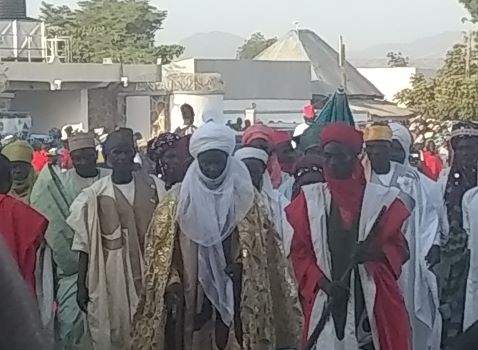Oyinbo Analysis of Nigerian Election (II)
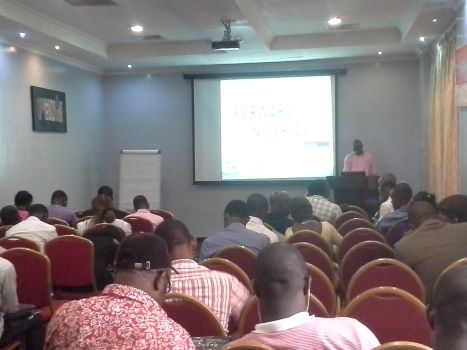
About ten days out, the president's guy running our effort, who I wished had a much greater role in the entire campaign, sent me to Lagos to meet the senator who was running the PDP's efforts and talk to him about GOTV efforts. During election campaigns, Nigerian politicians homes become political hives of activity. After an hours long traffic crawl from the airport, I arrived early evening, fifty people were milling outside the house. I was asked to come back in the morning.
Next morning, the Senator walked into the room looking tired and harried, pleasantly greeted me, no doubt thinking, “Great, now I got a waste time talking to this oyinbo.” We sat and had a little small talk. He had spent time in Atlanta. I quickly gave him my analysis of the Lagos' numbers we had pulled together in Abuja. I finished with, “Here's the Local Governments (sort of Nigerian counties) and polling units you should concentrate on getting people to the polls.”
He looked at the charts for a brief time, then without looking up said, “Finally, someone is telling us what to do.”
Oyyyyyy! Let me tell you, that's the last thing you want to hear ten days before an election from one of the guys responsible for turning out the vote in the biggest voting block of the country. I got back in the car, crawled three hours across half of Lagos for the hour and half return flight to Abuja, even less assured about our election prospects.
Election day came with plenty of problems, but the actual conduction of the election went relatively smoothly. Goodluck Ebele Jonathan was from the Ijaw in the Delta. The South had a much more democratic tradition. Jonathan was a democrat in attitude and practice, unfortunately much of the time to the power ambitious, such practice is taken as a sign of weakness. If Jonathan was to leave Nigeria a legacy, it would be democracy. He sought to institute a “free and fair” election even if it was to cost him the presidency and it did. I think to this day, the person most surprised by Jonathan's actions was the election winner, former General Buhari. Jonathan, seemingly beyond the capabilities of any other person, actually taught the old general something.
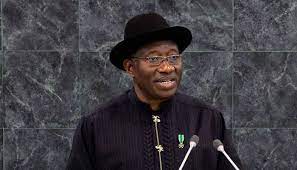
Well that's a great one to have on an election's resume: Last Job, Adviser to Incumbent Nigerian President’s Reelection Campaign — Lost.
I came away from my first Nigerian election engrossed by a beautiful country with a great people. I had learned plenty of lessons. Most especially, pay attention to Tinubu, he had been instrumental in beating us. Four years later, another call from Trippi, “You want to go back to Nigeria?”
“For who?”
“Atiku.”
A couple weeks later I was back in Abuja. Abuja's a funny place. It's the only place in the world I've ever been that reminded me of Phoenix, Arizona. It's only four decades old, built when the capital was moved from Lagos to the middle of Nigeria. It's a semi-desert crisscrossed by four, six, and eight lane roads filled with traffic. Six or seven foot walls line many of the roads' entire lengths, separating the traffic from the houses and apartments. The traffic lights work sometimes intermittently, creating a whole different rules of the road. You'd be surprised how well they work.
This would be a different campaign. There were not many, but a few faces from the Jonathan effort, along with a whole new group of smart, young, talented Nigerians. This time we were the opposition against the incumbent, a not tremendously popular incumbent, nonetheless the incumbent. The atmosphere was tenser. At one point, I can't remember exactly why, American interference in the election became the day's issue. APC had already made a point that they had retained the service of some Trump people, but that didn't stop the APC Governor of Kaduna, well known for ridiculous hyperbole, of making the stupid statement, “Any American interfering in this election will go home in a body bag.”
That evening a good friend from back in the Jonathan effort called and asked how it was going. I replied, “OK, but I'm a little nervous about going back in a body bag.”
The other end of the phone burst out in laughter, then a laughing, “Pay him no mind!” Followed by more laughter.
Life in the 21st Century is a reader-supported publication. Please become a paid subscriber.
My biggest impact with the campaign was a few weeks in when I wrote the former Vice-President's PDP convention speech. I had a lot more contact with the PDP this round and I had numbers. I had the numbers from the last election glaringly showing where and how PDP lost the 2015 election.
Voter turnout had collapsed from 38.2 million valid votes in 2011 to only 27.5 million in 2015. That's a drop of 29%, overwhelmingly represented in PDP's southern strongholds. Buhari had won the 2015 election with the same number of votes he had lost with in 2011. The overwhelmingly Igbo South East saw the greatest drop in turnout. The 2.5 million less votes the PDP received in the South East were alone the difference between Jonathan's loss and Buhari's victory.
A quick note — Nigeria is commonly broke down into six regions – South East, South West, South South, North Central, North East, and North West. It is anther imperial legacy. The present 36 states and Federal Capital Territory (Abuja) have, over time, come into existence across the last half-century.

The first thing I did upon arriving back was put together a short graphic memo showing the loss in black and white, state by state, ending with the Local Governments that should be targeted to increase turnout if PDP hoped to win this time. The memo was met, well to say it was met in anyway by PDP, would be wrong. It was basically ignored by all but a few. Toward the end of the campaign, while standing with a small group of people outside Atiku’s house, Senator Ben Bruce of Bayelsa pointed at me and jokingly said, “This man has been suffering the whole campaign.” Funny.
Campaigns are not some hot bed of creativity, just the opposite. They’re an amazing amount of work to be accomplished in an always too short time. The overwhelming amount of work is repetition, repetition, repetition. Half the job of a good campaign manager is telling people no and then getting them to do what the campaign needs done, “Great idea, but how about doing this.” Any good campaign's constant and consistently repeated message is easiest example. While I think Obama was a god awful president, he was a most excellent candidate, one of the most disciplined message conveyors I ever observed.
Without a targeted increase in turnout PDP was doomed. I spent five months saying to people, “That's great, what about this.” At one point, no doubt sick of hearing me repeat my turnout message, a smart fellow from the South who had been part of Jonathan's administration said to me, “Maybe those votes never existed?”
Which was an excellent point. I replied, “Doesn't matter. People are there, we need to get them to the polls.”
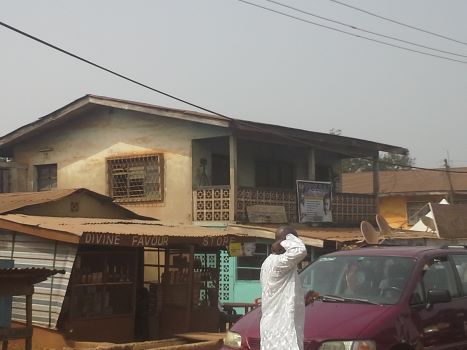
So, when the 2019 vote came in, it was no surprise turnout/vote totals declined again and PDP lost the election. This time turnout fell from 28.6 million to 27.3 million, a decline of 4.5%. That's better than 29% in 2015, but still detrimental to PDP's totals. Decline was across the country, still declining again in the South, especially in the Igbo South East. It seemed the Igbo were seceding from presidential elections.
You might ask, “Where was Bola Tinubu, today's president-elect, instrumental in Buhari's 2015 upset?” Buhari had won in 2015 with a vigorous message against corruption, so it might stretch a lot of Nigerians' credulity, not to mention the former dictator's prosecutorial instincts to have the Lagos Asiwaju standing next to him. Over time a relationship developed of you stay in Lagos, I'll call you if I need anything. Tinubu was out there publicly in 2019 for Buhari's reelection and no doubt more so behind the scenes. When Buhari won reelection, the only thought in Bola's head was, “Emi lokan” (It's my turn).
When you get into a long campaign against people, it shows you a lot about them. I never particularly liked the former Governor of Lagos, though I know a few very zealous advocates. I had nonetheless come to appreciate Tinubu's political acumen and abilities. In the last decade, Tinubu had proved to be the top political mover in Nigeria. I had no doubt he'd be the APC nominee in 2023.
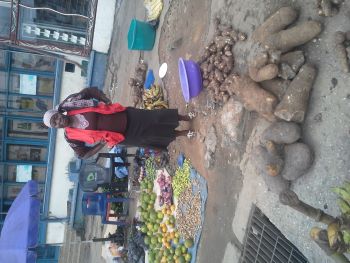
As Vice-President, Atiku's stand against Obasanjo seeking an unconstitutional third term remained exemplary. Regularly moving people out of power, even, or especially those in great power, is essential for any democracy. George Washington's greatest legacy for the infant American republic was stepping down after two terms. Look at all the opposite bad examples across history or just in post-colonial Africa with the exceptions of Mandela in South Africa and Jonathan accepting electoral defeat in Nigeria. Atiku deserves respect.
He also is the number one thinker and advocate on restructuring in Nigeria. Basically a dispersing of power from Abuja, establishing functioning and robust local government, something not only essential, but critical for Nigeria's future. The American constitution’s federal structure was placed atop an already established, robust, and thriving local government infrastructure, a structure over time Washington DC has detrimentally supplanted, but that's another story.
So, when I received a couple calls from Atiku's people two years ago, I was still interested in helping if he ran again, but the campaign needed to be much different. I just said, “The only thing I have to say is an organization needs to start being built yesterday. That's exactly what I'll say and the only thing I'll tell Atiku.”
They didn't want to hear that. I sat this one out.
Once again, Atiku got the PDP nomination. This time it was with a lot less delegates participating, that's never a good thing. Tinubu secured the APC nomination with support of every sitting APC governor. The governors are the greatest political powers in Nigeria. Tinubu was once again keeping together the 2015 APC coalition. 2023 would be PDP Atiku versus APC Tinubu. Tinubu was the favorite, but certainly no sure thing, even when Peter Obi entered the contest. Obi was the race's wild card.
The question remained was he for real? The better Obi did would be worse for PDP. I like Obi. I was in several meetings with him in 2019 when he was Atiku's running mate. He was in a couple meetings where I repeated my turnout message, he didn't seem particularly interested. But looking at the results from late Saturday, maybe he had been paying some attention. For PDP, the Obi candidacy turned out to be too real, in the end coming within 800,000 votes of Atiku.
